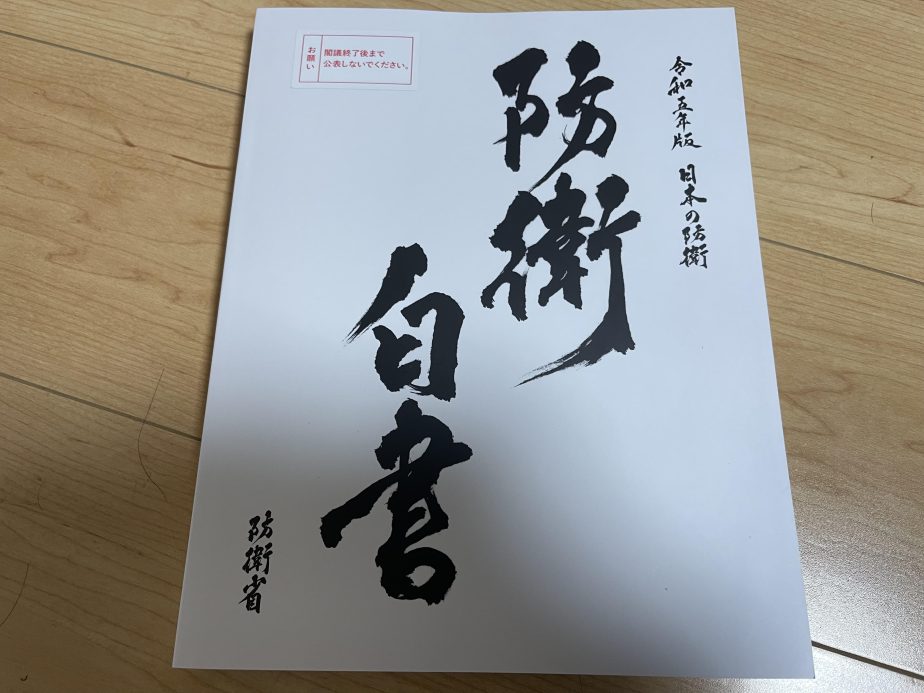In its latest defense white paper, Tokyo expressed grave concerns about intensifying China-Russia joint military drills around Japan for the first time and cautioned that “unilateral changes to the status quo by force” pose a serious challenge to the existing international order.
“The world is at a turning point in history. The international community is facing its greatest trial since World War II, and we have entered a new era of crisis,” Japanese Defense Minister Hamada Yasukazu said on the opening page of the 2023 defense white paper, titled “Defense of Japan 2023,” which was released on July 28.
Russia’s continuing aggression against Ukraine “is an unprecedented situation. A permanent member of the United Nations Security Council has shown disregard for international law by launching aggression against a sovereign country,” Hamada also said in the defense white paper.
The defense paper pointed out that Russia’s invasion of Ukraine has shaken the very foundation of the international order, not only in Europe but also in Asia.
Regarding joint military exercises between China and Russia, the paper pointed out that since July 2019, the two nations have carried out a total of five joint flights of bombers around Japan. In particular, the paper noted that six Chinese and Russian strategic bombers flew near the Japanese archipelago on May 24, 2022, during the Quad summit involving the leaders of Australia, India, Japan and the United States. The paper pointed out the joint flight was intended as a demonstration against Tokyo.
The repeated joint bomber flights and joint navigations of vessels by Russia and China “are of grave concern from the perspective of the security of Japan and the region,” it said.
“We must continue to monitor actions by the Russian military in the Indo-Pacific region, including Japan, with strong concern,” the defense paper added.
This is the first time the Japanese defense ministry has shown such grave concerns over growing military cooperation between Beijing and Moscow.

Tokyo prepares a defense white paper every year. “Defense of Japan 2023” reflects assessments about the regional security environment surrounding Japan that the Ministry of Defense made from April 2022 to March this year. Photo by Takahashi Kosuke.
The white paper also expressed “serious concern” over China’s current external stance and increasing military activities, accusing Beijing of presenting “an unprecedented and the greatest strategic challenge.”
“China has been intensifying its activities around Senkaku Islands, the Sea of Japan, and the Western Pacific Ocean including areas around the Izu and Ogasawara Islands, extending beyond the so-called first island chain to the second island chain,” the paper noted. Tokyo administers the disputed Senkaku/Diaoyu Islands in the East China Sea and insists they are an inherent part of the territory of Japan, but China claims they should be under Beijing’s control.
The white paper also highlighted the importance of peace and stability in the Taiwan Strait for Japan’s security.
On Taiwan, the paper pointed out the fact that China launched nine ballistic missiles on August 4, 2022, five of which landed in Japan’s Exclusive Economic Zone (EEZ), adding that “this was perceived as a threat to local residents.”
It is very rare for Japan to specify China as a “threat” in official documents.
“The stability of the situation surrounding Taiwan is also critical for Japan’s security and must be closely monitored with a sense of urgency while cooperating with the international community,” the white paper said.
Regarding North Korea, the white paper states that military developments in the Northeast Asian country continue to pose “an even more grave and imminent threat to Japan’s national security than ever before,” by pointing out Pyongyang’s rapid progress in nuclear and missile development.
“It is believed that North Korea has the ability to attack Japan with nuclear weapons fitted to ballistic missiles,” it noted.
Tokyo prepares a defense white paper every year, and this 2023 edition reflects assessments about the regional security environment surrounding Japan that the Ministry of Defense made from April 2022 to March this year.

































